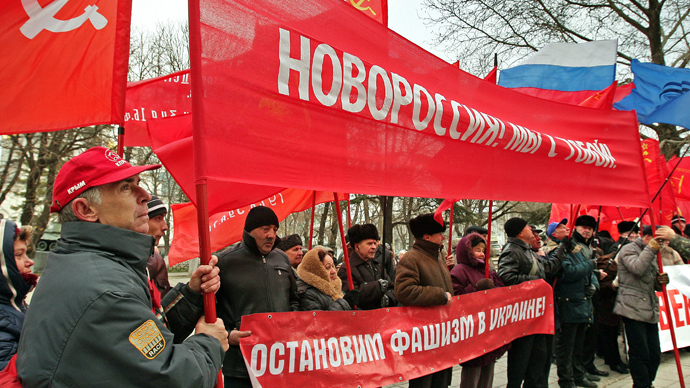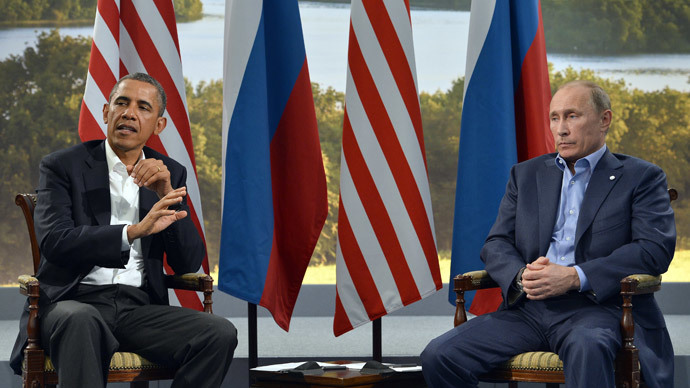A renaissance for Crimea? Peninsula looks with hope to the future

A few days before the end of 2014, I visited Crimea to see the immediate effects of its re-unification with Russia. I found a peninsula largely content with its historic choice but grappling with a future that, while promising much, won't be easy.
The Azov Sea winds are roaring and the waters are choppy. A lone Russian policeman is trying to keep order among hundreds of frustrated car drivers on the approach to Port Kavkaz, from where it’s only 4 kilometers by ferry to Crimea’s Kerch. I’ve been slowly inching forward for five hours. Frustration is general and the rain lashes down.
I approach the officer, asking if I can expect to reach Crimea tonight. “Normally, it only takes an hour or two, but the weather has been horrible all day. Until the bridge is built across the strait, we are at His mercy,” he explains while pointing towards the sky. As I return to my vehicle, a man in a Sevastopol-registered car rolls down his window and asks for an update.
“What's he saying?”
“That God will decide when we get there.”
“I hope God knows we are trying to get home for New Year's. I am tired. I’ve already driven from Rostov.”

“Maybe if Crimea goes back to Ukraine, God will call off the storm?”
“No, No, No! Crimea is never returning to Ukraine! I’d sit here for six months rather than do that.”
I’d arrived at Port Kavkaz at 7pm. Eventually we rolled onto the ferry at 1am. It might have been the music, Damien Rice was monotonously warbling on my stereo, but I instantly fell asleep. At 5am, there was the angry occupant of the car behind knocking at my window: “Wake up! Wake up! We are here!”
Off the boat, into Kerch. There are no lights. At all. The Ukrainian authorities have cut off Crimea’s electricity. Better to head for Simferopol then than wait for Kerch to wake up.
The roads are not as bad as I’d feared, clearly some investment has already been made by the new Russian authorities. However, the evidence of two decades of Kiev misrule is hard to miss. Wild dogs roam the villages and material poverty is quite obvious. Bear in mind that I’ve crossed from the wealthy Russian southwest: Sochi, Anapa, Novorossiysk. Compared to the glitz, glamour and modernity of prosperous Sochi, this is another world. It’s akin to leaving San Diego and immediately entering Albania.
In Simferopol, the power has been restored. It's breakfast time at the Hotel Moscow. “Where are you from?” I inquire of the server. “Yalta, Russia,” she replies. Yalta is the legendary Tsarist and Soviet resort which until a year ago was Ukraine’s "summer capital."
Oddly, when I was in Yalta in 2013, a friend from Lvov asked me what it was like. “Russia,” I answered. The differences with "mainland" Ukraine were already glaring then.
At the next table are Dmitry and Leonid, two local entrepreneurs in for a pow-pow. I seize the opportunity to gauge their feelings about the new Crimea. “Imagine you are a dog at the pound and you’ve just given up hope, and suddenly a kind man comes and takes you home? That is how we feel,” Dmitry says. Leonid butts in quickly: “Putin has adopted us, rescued us.”
“I am 30. I have lived in a failed state for most of my life. This is the first time I feel there are real prospects for Crimea. Kiev didn’t care about us. Only to steal from us and have holidays here,” Leonid says.

What about the new sanctions from the US, surely they will affect the business climate? Dmitry laughs. “Obama is a donkey, let me be clear. When a drunken Ukrainian from the Donbass [Soviet leader Nikita Khrushchev] handed Crimea to Ukraine, did the Americans have sanctions then? No, they didn’t. I had American English teachers from the Peace Corps. These Americans were always talking about democracy and freedom. We democratically voted to rejoin Russia. If they love democracy so much, why do they sanction us for our free choice?”
As I leave, Leonid shouts, “Crimea was Russia, Crimea is Russia and Crimea will always be Russia!”
The next stop is Sudak, where I have promised to meet a Tatar who contacted me via social media after reading a piece I wrote about Crimea earlier last year. Tamila defines herself as Ukrainian and is just back from Kiev.
“It’s like communism here again,” she said.
“It seems pretty capitalist to me,” I replied.
“I mean it’s like the Soviet Union.”
Tamila doesn’t like Russia, although she's never been to the mainland. She supported Euromaidan but has become disenchanted with the movement. “Of course, Ukraine is destroyed. Of course, we are economically better off than them. Of course, Poroshenko has betrayed the Maidan. However, I don’t trust Russia.”
“My ancestors were deported by Stalin,” she reveals. I counter that Stalin was Georgian. “He was the ruler of Russia then," Tamila exclaims angrily. I ask her what does she really want? “I think Crimea should be independent, its own country. But if that is not possible, I’d rather be managed by Kiev instead of Moscow,” Tamila says.
Tamila accepts that most locals prefer to be united with Russia. “The people think they are going to be rich because they joined Russia. The Kremlin wants Crimea for its strategic military value. The Byzantines, Ottomans, even the British fought for this place. I understand that Russia won’t let the Americans come here but I’d like to see another way,” she says, forlornly.

Driving toward Feodosiya, I spot a Ukrainian flag painted on a lamppost. The first I’ve seen all day. Entering the city center, there's a traffic accident. A Russian-plated Toyota is planted into the rear of a Ukrainian-registered Lada. A crowd has gathered - perfect timing to try talking to a few locals.
Igor is an off-duty policeman. Although he's not wearing it, my question is how does he feel in his new uniform? “I’m not political but I know one thing,” he said. “In Ukraine I was paid 2,000 hryvna a month, which is about 8,000 rubles. It’s not possible to live on this money. Suddenly we joined Russia and my salary was increased to 50,000 rubles. So, one month pays more now than six did before. My wife is a nurse, she also got a bigger amount of money and the Russians are fixing the hospital.”
I take a spin around Feodosiya, which is where the Crimean Riviera starts. At the city’s main promenade, I buy a souvenir from a kiosk. The sales assistant, Galina, has a clear opinion. “When the USSR ended, we were promised the sun and stars; instead, for 20 years, it got worse here every year. My view is that Ukraine is a failure, it’s too weak. People here have more in common with Vladivostok than Lvov. It’s another world. Ukraine should be like Yugoslavia and just break up into parts where everyone can be happy.”
Leaving Crimea was easier than entering it. The weather had calmed and the crossing took only four hours from the start of the queue to landfall in Port Kavkaz. However, the urgent necessity for a bridge from the peninsula to the rest of Russia is obvious. Another stark observation is the difference in living standards between “old” and “new” Russia. Despite current economic problems, western media commentary fails to mention just how prosperous Russia has become by comparison with most of its former Soviet satellites. During its time in Ukraine, Crimea fell to pieces.
Crimeans are currently infused with hope. They earnestly believe that their economic nightmare under Kiev rule is over. How Russia responds in this regard will be vital. If promises are kept and money is invested, in great quantities, Crimea could be poised for a golden age. However, if Moscow fails to honor commitments, the mood may change.
The statements, views and opinions expressed in this column are solely those of the author and do not necessarily represent those of RT.
The statements, views and opinions expressed in this column are solely those of the author and do not necessarily represent those of RT.













